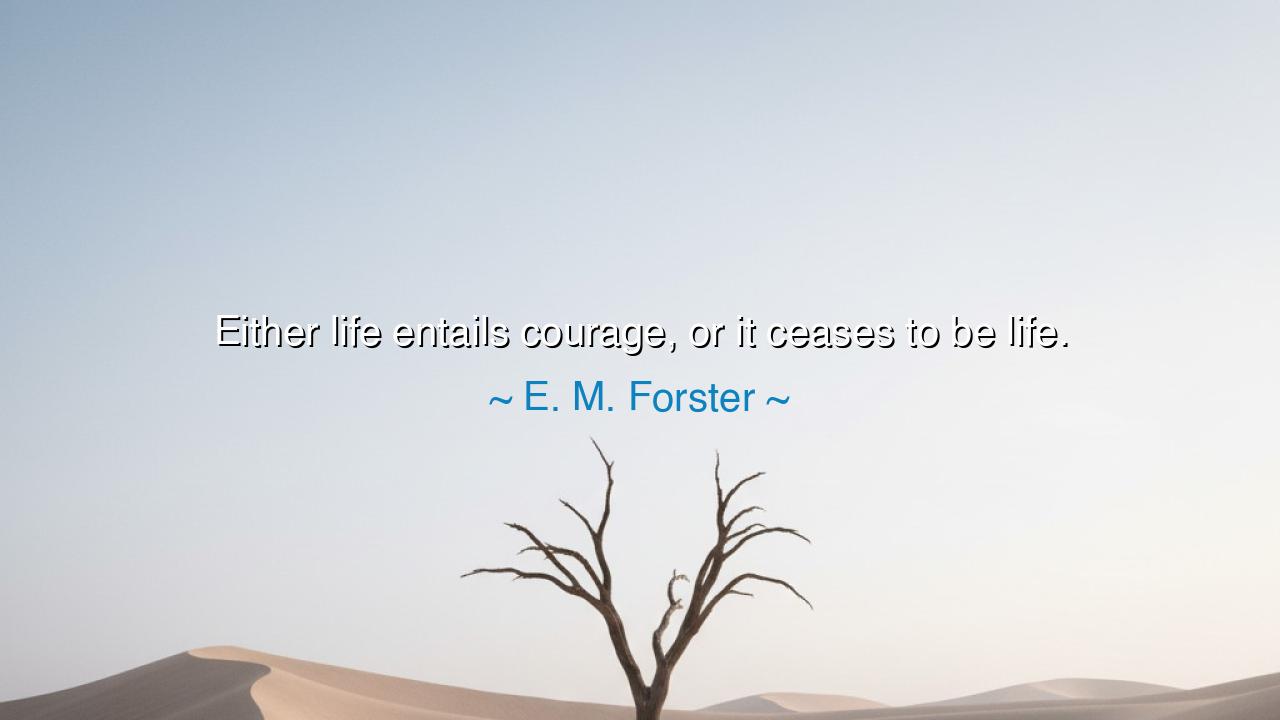
Either life entails courage, or it ceases to be life.






“Either life entails courage, or it ceases to be life.” Thus spoke E. M. Forster, the quiet yet profound voice of English letters, whose pen revealed the delicate truths of the human heart. In this single line lies a law as old as the dawn—the law that to live truly, one must dare. Forster reminds us that life, stripped of courage, becomes mere existence—a shadow without fire, a body without soul. To breathe is not to live; to live is to rise, to struggle, to face the unknown with the heart unafraid.
Born in a time of social constraint and silent fears, Forster understood the tension between comfort and authenticity. He saw men and women smothered by conformity, too fearful to speak their truths or pursue their dreams. His own life, marked by both artistic triumph and inner restraint, taught him that without courage, the human spirit withers. In his novels—A Passage to India, Howards End—he painted this truth with tenderness: that love, integrity, and freedom all demand courage, and that those who lack it trade their lives for a hollow safety. To live, Forster says, is to risk—risk rejection, loss, failure, even pain—for only in such risk do we become fully human.
The ancients would have nodded at his words, for they too knew that life and courage are one. The Greeks honored not the man who lived longest, but the one who lived bravely. Achilles, though doomed to die young, chose a short life of glory over a long life of comfort. His story endures not because of his victory, but because of his choice—to embrace the peril of being fully alive. The coward may live many years, yet each day is a small death; the brave may die early, yet each breath burns with eternity. Thus, Forster’s saying echoes the wisdom of heroes: that courage is not the absence of fear, but the will to act in spite of it.
Consider Eleanor Roosevelt, who began as a shy, uncertain woman and rose to become one of the most powerful moral voices of her age. She faced ridicule, doubt, and scorn, yet she persisted—speaking for the voiceless, defending the oppressed, and urging a nation toward compassion. “You gain strength, courage, and confidence,” she said, “by every experience in which you really stop to look fear in the face.” Her life was the embodiment of Forster’s truth: that life without courage becomes stagnant, but with it, even the meek can






AAdministratorAdministrator
Welcome, honored guests. Please leave a comment, we will respond soon